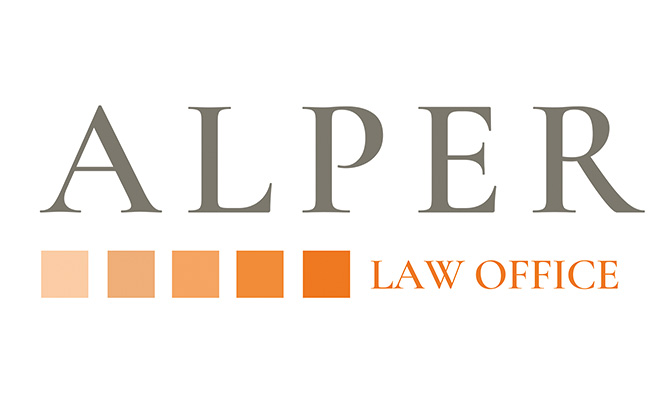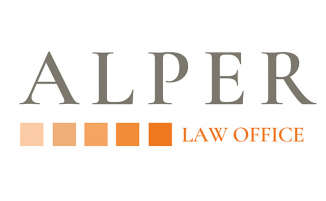As a consequence of the pandemic, the perspective on the media and entertainment sector and the way of consuming media content has changed as well as in all areas of life. Streaming platforms play a central role in the economy and its rapid development since the birth of the public commercial internet over 20 years ago has produced many societal benefits and new opportunities for free expression and innovation. Consumers are now turning to streaming platforms where they have many more options and can access them at an affordable price over the internet. From the consumers’ perspective, this has led them to over-the-top (OTT) media services and digital platforms offering on-demand streaming services. The OTT industry is actually in a period of maturation. We’re seeing a period in which the technology informing OTT trends is becoming more settled.
In particular, the demand for platforms offering on-demand streaming services has increased since more original content can be produced as a result of both the greater variety of productions and the fact that it provides a freer space in terms of time limit and content control. With the increasing demand for digital media, investments in this area and the number of digital media platforms have also increased.
Turkey has attracted the attention of many domestic and foreign investors in this field over the past years. Despite the obligation to establish a company and the content audit of Radio and Television Supreme Council (RTUK), many domestic digital broadcasting companies have started their services and offered their original and extensive content to consumers. The sector continues to gain value every day with the introduction of international digital media platforms that offer services in many different countries around the world into the Turkish market.
There are several important regulations investors who want to provide on-demand broadcasting services in Turkey should follow. The main regulations on this field are (i) ‘Law on The Establishment and Broadcast Services of Radio and Televisions No.6112’ (RT Broadcasting Law), (ii) ‘By-Law on Administrative and Financial Conditions which Media Service Providers and Platforms and Infrastructure Operators are required to comply with’ (By-Law on A&F Requirements’), and (iii) ‘By-Law on The Provision of Radio, Television and On-Demand Media Services via Internet’ (By-Law on RToD via Internet).
All local and foreign digital broadcasting platforms that will broadcast in Turkey must first be authorised by RTUK under Information and Communication Technologies Authority (BTK) supervision according to RT Broadcasting Law. Article 29/A of the RT Broadcasting Law indicates that media service providers wishing to offer radio, television, and on-demand broadcasting services only on the internet must obtain a broadcast licence, and platform operators wishing to transmit these broadcasts over the internet must obtain a broadcast transmission authorisation from RTUK. According to By-Law on A&F Requirements, to receive a broadcasting licence for VOD (video on demand) services:
- The applicant must be established as a Joint Stock Company
- Non-public shares must be registered shares
- The articles of association of the company should clearly state the issues governing the partnership structure and issues of participation
- No usufruct shares should be issued in favour of any person
- Domestic and foreign shareholders should not own preferred stocks
- The provisions of the sample articles of association prepared by RTUK and published on its website must be included in the company’s articles of association (Incorporation Contract)
- The capital amount of the organisations applying for a broadcasting licence to provide on-demand broadcasting services must be at least 100,000 Turkish liras.
The fees for the broadcast transmission authorisation and broadcast licence for ten years on the internet are 182,168 Turkish liras each for the year 2022 according to RTUK. Also, media service providers who provide SVOD (subscription-based video-on-demand) and conditional access and online media platform operators providing conditional access to customers are obliged to pay five-thousandths (0.5%) of their annual net sales to RTUK every year according to the By-Law on RToD via Internet.
By-Law on RToD via Internet also regulates the obligations of media service providers and internet broadcasting platform operators in detail. The most important obligations of media service providers are to stop the internet service of on-demand broadcasts that are not considered appropriate by RTUK, providing the requested information to RTUK, declaring their commercial communication revenues and making the payment of that amount of the share to RTUK. Internet broadcasting platform operators are also obliged to inform RTUK of the number of users joined to their conditional access module, not to transmit the publications of media service providers that do not have a broadcast licence, whose broadcast licence period has expired or been revoked, provide remote monitoring by allowing access to RTUK.
Within the scope of developments in the cinema industry, the Regulation on Amending the Regulation on Supporting the Cinema Industry has been published in the Official Gazette No. 31629 on 15 October 2021. Due to new additions to the regulation, an exception is provided for the application limits for support of the Culture and Tourism Ministry for foreign film productions. According to the Article 9(5), applicants of all types of support could not receive financial support for more than one project in the same year. However, following the addition of the exception clause to the end of the article, this limitation no longer applies to foreign motion picture movie production applications for Ministry support. Therefore, foreign motion picture movie productions can receive financial support for more than one project in the same year.
With the development of the media and entertainment sector, it has also become necessary to take measures to regulate new areas to prevent abuses that may occur and sanction the crimes committed by using electronic communication tools. As a matter of fact, the Law on Regulation of Broadcasts via Internet, and Prevention of Crimes Committed Through Such Broadcasts (Law No. 5651) was enacted in Turkey and the need for the protection of social and individual interests arising from inadequate legal regulations was tried to be met.
Before the amendment made in Law No. 5651; while social media operators consist of content providers, hosting providers, access providers, and mass use providers, after the amendment made with Article 1 of Law No. 7253 dated 29 July 2020 named the Law on Amending the Law on Regulation of Broadcasts via Internet, and Prevention of Crimes Committed Through Such Broadcasts (Law No. 7253) social network providers took their place among the social media operators. In addition, BTK published a decision titled ‘Procedures and Principles Regarding the Social Network Provider’ on 29 September 2020, and with this decision, the boundaries of the related concept were tried to be determined by specifying the procedures and principles regarding the implementation of the obligations of the social network provider.
The ‘Social Network Provider’, which is the concept introduced into Turkish legislation by Law No. 7253, is defined as natural or legal persons who enable users to create, view or share content such as text, images, audio, location on the internet for the purpose of social interaction in Law No. 5651. In addition to covering the content provider, the social network provider also includes elements for users to create and share content for the purpose of social interaction.
Although the definition of ‘Social Network Provider’ was included in the amendment made with Law No. 7253, this definition has been subjected to various criticisms because the boundaries of the related concept are not clear enough. Because it is important for the protection of freedom of expression that the measures and sanctions applied to operators who are social network providers are determined with certain lines and that operator is subject to sanctions only if he exceeds the scope of being a content provider.
As a matter of fact, as mentioned above, a decision entitled Procedures and Principles About the Social Network Provider was published on 29 September 2020, and in Article 2 of the related Decision, titled ‘Scope’, it is regulated that natural or legal persons who include content for social interaction purposes only in a certain part of the broadcast on the internet and platforms where the content is offered as a secondary and ancillary service shall not be considered as social network providers. However, since the regulations are not published within the framework of the provisions of the law, it can be said that they are not carried out in accordance with the principles of legal certainty and predictability.
In accordance with the Additional Article 4/9, as amended by Law No. 7253, the social network provider has obligations arising from both being a content and a hosting provider.
The first of the obligations stipulated in Law No. 7253 is that the foreign-based social network provider, whose daily access is more than one million in Turkey, should designate at least one authorised person as a representative in Turkey to ensure the fulfilment of its obligations under Law No. 7253. Also, the social network provider should notify BTK of the representative’s identity and contact information and include the contact information of this person on the website in a way that can be easily seen and directly accessed. If this obligation is not fulfilled within 30 days from the notification of non-fulfilment of the obligation, an administrative fine of ten million Turkish liras will be imposed on the social network provider by the President, and an administrative fine of 30 million Turkish liras will be imposed on the social network provider if this obligation is not fulfilled within 30 days from the secondary notification.
For more information, please contact:

Onur Alper, founding partner

Nisa Çevik, associate

Nazlı Durmayaz, associate
ALPER LAW OFFICE
Akat Mah. Menekse Sk. No 53, Besiktas/Istanbul, Turkey














